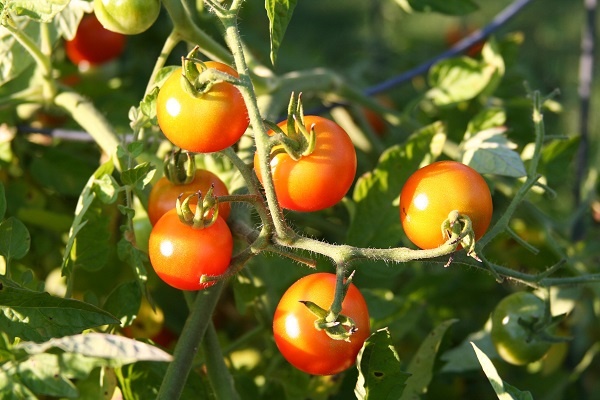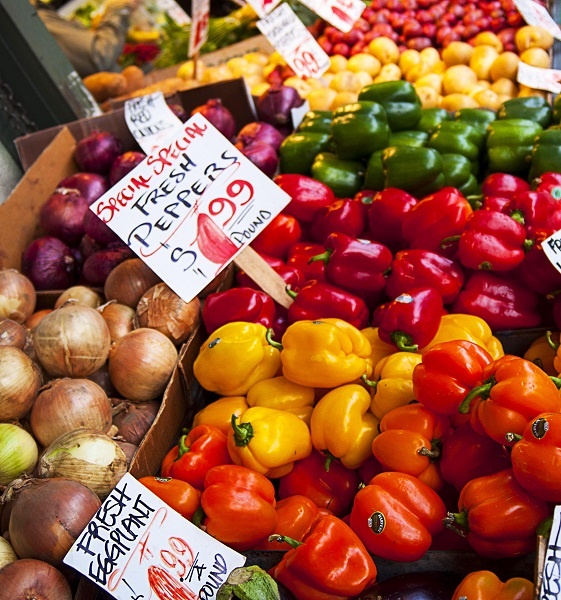We pride ourselves on being Oregon’s first to achieve gold certification status as a GreenDoc office with the Eco Dentistry Assocation. Green healthcare aims to reduce or eliminate energy consumption, waste creation, pollution, and hazardous materials whenever possible.
But it’s not just about green healthcare. We aim to be sustainable in all areas. Making green choices in your diet is especially important for your health and the earth. Here are our 10 tips for sustainable, healthy eating.
Buy Local
Buying local wastes less energy for transporting food. By buying local you decrease the distance that your food has to travel to reach you, an average of 1,500 miles. You also support your local farmers!
Buy Organic
You already know why organic food is better but it can definitely be more expensive. If this is an issue for you, you can prioritize which organic foods you buy. We recommend buying the organic versions of produce that have the most chemicals/toxins when grown regularly. These include apples, strawberries, bell peppers, spinach, celery, and more.
Produce that has a covering such as pineapples, grapefruit, cantaloupe, or avocados are safer to purchase conventionally.
Buy In Season
Buying food that is in season means that your food doesn’t have to travel from other countries, at times from across the world. All that transport has a big carbon footprint. Farmers markets or community gardens are a great way to find in season produce.
Eat Less Meat
Livestock require more land, food, water, and energy than plants. Meat impacts the environment more than any other food. Many animals are treated cruelly as well.
If you’re worried, there are other ways to get enough protein. For example, leafy greens, quinoa, beans, and nuts all have substantial amounts of protein.
Choose Sustainable Labels/Brands
All the labels on food packaging can be confusing. Not to mention they aren’t always reliable. Learn what all the food labels mean and which ones are reliable here. Knowing which labels to look out for will make grocery shopping much easier.
Choose Fish Wisely
There’s a lot of pollution in our oceans today and this is affecting our fish supply. But eating fish is healthy! It’s a good source of protein and the omega-3’s are great for our hearts.
When choosing fish for your diet, consider this guide to eco-friendly and healthy choices. Albacore from the U.S. and Canana and wild Alaskan salmon are both good additions to your grocery list.
Grow Your Own Food
Having a garden means you’ll save money, reduce your environmental impact, and benefit your health. Food in its freshest form has the most nutritional benefits. The produce you grow will be packed with vitamins, minerals, and antioxidants. Growing your own garden can also be a good source of exercise and something you can take pride in!
If you don’t have outdoor space for your own garden, consider joining your local community garden or even growing an herb garden on your windowsill.

Start A Compost Pile
Composting can be a huge benefit to you and your garden. You are recycling food or yard scraps that normally would go to landfills or your garbage disposal. You can compost coffee grounds/filters, fruits and vegetables, egg shells, nut shells, and even shredded newspapers or fireplace ashes!
The soil that your composting will yield is rich in nutrients and great for your garden or flower beds. The composted soil saves you money since you won’t have to go buy packaged compost or expensive fertilizers.
End Food Waste
Every year, about 40% of perfectly edible food in America is wasted. This is ridiculous! If we wasted just 15% less food it would be enough to feed 25 million Americans.
You can help reduce your food waste by eating leftovers, not overstocking your fridge with perishable items, or freezing food nearing its expiration date.
Use Reusable Bags
Remember to bring your reusable bags when grocery shopping. Plastic bags are horrible for the environment. Only 1% of plastic bags are recycled world-wide and an estimated 1 million birds, 100,000 turtles and other sea animals die from ingesting discarded plastic bags. There’s plenty of other reasons to use reusable bags over plastic bags.
Start putting these 10 tips into action and feel great knowing you’re improving the health of your body and the health of the environment. Nurture your smile; nurture your world.


